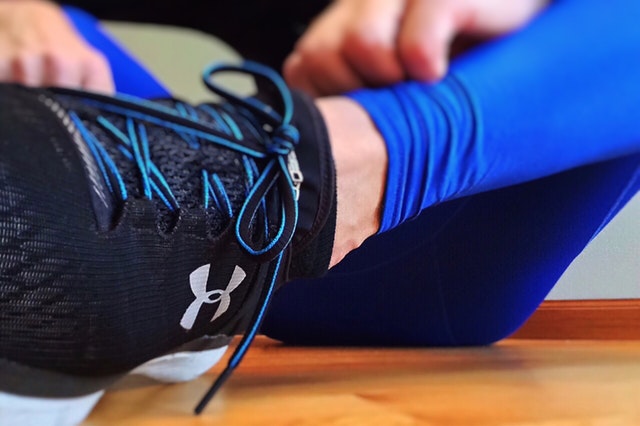Vein problems are common during pregnancy, especially varicose and spider veins. The reason? Your body is producing extra blood to keep your baby healthy and alive, but it puts extra pressure on your own blood vessels, especially the lower half of your body. Your growing uterus also puts pressure on your veins, and the amount of progesterone in your body makes your blood vessels relax.
Varicose veins can be painful, especially at the end of the day. They may burn, itch, or throb, and even if they do not cause pain, they can be quite unsightly. Pregnant women are most likely to develop them if they:
Are on their feet for long periods of time throughout the day
Have relatives with varicose veins
Are already overweight or obese
Are expecting twins or multiples
Are older when they become pregnant
Have been pregnant before
While pregnancy-related vein problems are not always preventable, there are some things you can do to help minimize your risk.
1. Exercise
If your doctor okays moderate exercise during your pregnancy, go ahead and do it to keep your blood circulating and to help prevent varicose veins. Take a brisk walk at least once or twice a day. The key is to get your heart pumping.
2. Elevate your legs
Standing on your feet all day can lead to vein problems when you are pregnant, so be sure to take a break every now and then. When you sit, elevate your feet so that your blood is not working against gravity to pump back to your heart. Also, avoid sitting with your legs crossed.
3. Alternate legs
If standing for long periods of time is unavoidable, be aware of the way you stand. If you have a low stool and can safely stand on one leg, rest one foot on the stool for a few minutes before switching to the other. Flexing and pointing your foot and rolling your ankles can also help get your blood flowing while you stand.
4. Get your vitamin C
Unless your doctor says otherwise, be sure to include plenty of vitamin C in your diet or consider taking supplements. It helps your body produce collagen and elastin, proteins necessary for healthy veins. Foods high in vitamin C include broccoli, oranges, strawberries, kale, red peppers, and grapefruit.
5. Sleep on your left side
A large vein on the right side of your body — the inferior vena cava — already receives a great deal of pressure from your growing uterus. And that puts extra pressure on the veins in your legs. Sleeping on your left side can help ease some of that pressure at night.
6. Avoid heavy lifting and straining
You probably don’t want to do any heavy lifting during your pregnancy anyway, but any type of strain you place on your body can increase your likelihood of developing varicose veins. This includes straining during a bowel movement, so be careful with constipation, which is a common pregnancy symptom.
7. Keep an eye on your weight
Most women gain between 25 and 30 pounds during a healthy pregnancy. Unless your doctor says otherwise, gaining more due to poor dietary choices can lead to vein problems.




